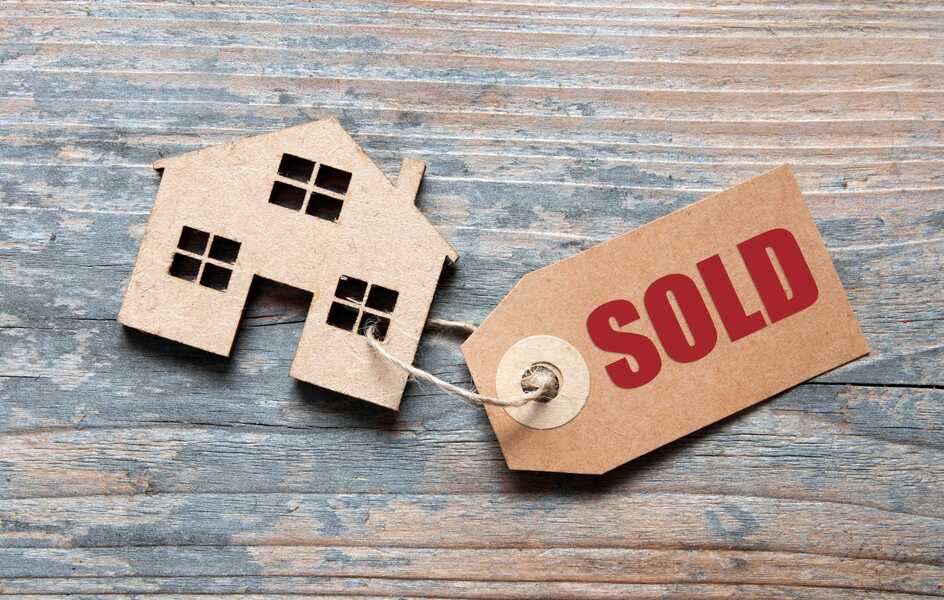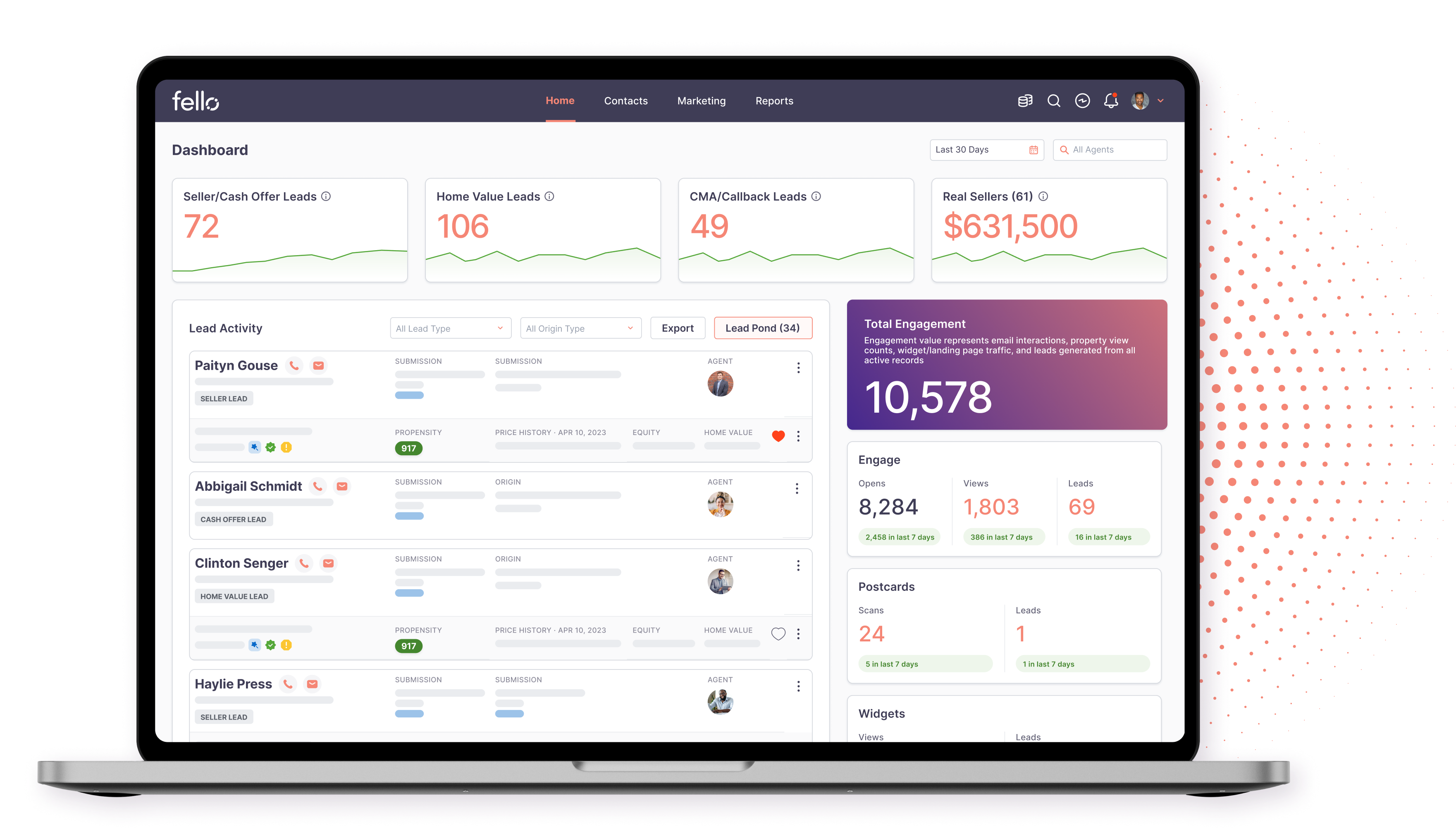Blog Post
What is the Home Selling Process?

June 29, 2020 written by Tom Schrader, Chief Product Officer
The home selling process presents many questions in terms of where it starts to where it ends. Let’s walk through the process with you.
The process starts with the decision or commitment to selling your home. Once you choose to go that route, then it's talking to a professional to make recommendations on what you need to do to get your home ready to actually sell it. Having discussions where you would price it and what the market is doing.
Once you gather all of that information, it's actually executing those recommendations of whomever the professional you’re talking with. A lot of times that's a decluttering, making minor repairs, having a pre-home inspection, and then making the repairs requested in the pre-home inspection. You do all of this prep work to get your house ready to go on the market.
Once your house is ready for the market, the next step of the process is for the realtor to come over and actually start marketing the home. This includes things like photographs and virtual reality tours. They then list your home for sale, putting it on the market. That’s where the actual process of selling the home begins. Once it goes on the market, the realtor puts photos all over the MLS, on the internet, to drive as much traffic as possible.
When your house is officially listed, this is when you start to see activity. Potential buyers start coming through your house, in what’s referred to as showings. We want to get as many potential buyers in your house as possible to gauge the level of interest. Once you have an interested party, hopefully they put forth an offer in writing. The next step of the process is to negotiate the buyer’s offer.
When you come to an agreement with an offer, then the majority of buyers will do a home inspection. They'll make sure that there are no repairs that need to be made. If there are, they'll request that you make those prior to the closing of the sale. This is where you're actually making the repairs agreed to, that the buyer's requested from the home inspection.
The next step would be actually going through the title and escrow process. Filling out all your paperwork and getting the payoffs, if you have a mortgage. The last step is actually closing on the home. This is where you sign the documents, the buyer signs the documents, then the county records the deed, the file transfers, and then the buyer takes possession of the home.
Another contributor to how long it will take to sell your home is how strong the market is. If the market is slower, it might take more than six months to sell. If the market is really fast-paced, you might sell it in a week. There's a bit of an unknown timetable of how long it actually takes to be on market.
The final step, which is really the unknown, or the largest variable, is once you have accepted an offer, is how quickly closing will happen. The majority of closings are an average of 45 days. Some people can as close as quickly as 30 days. Sometimes closings are scheduled for 90 days. Closings dates can vary depending on the buyers and sellers time frame.
Sometimes there are extreme scenarios where you're spending a lot of time to get your house market-ready, and it takes a long time to sell on the market, and then there is a longer period of time before closing, you could be looking at nine months to a year to sell. In the best-case scenario, your house is already market-ready, you list it and it sells in a day! That could be 45-60 days from start to finish.
Depending on some variable factors, you can anticipate it taking an average of six months to sell your home. Don’t be surprised if the selling process takes less time than that, or perhaps a little longer.
Factors That Impact the Selling Timeline
At some point, you may face one or more life situations requiring you to sell your home. Since it isn’t something you frequently do, numerous questions will arise. One of the common questions you will ask is, "How long does it take?" In the real estate market, this period is referred to as DOM, or days on market. In the United States, the average time to sell a house ranges between 63 and 93 days, from the first listing to closing time. However, this question lacks a perfect answer. It can happen quickly due to sheer luck. The prospective buyer might be ready, or it can be due to one or more factors outlined below.
State of the Market
Market forces, including supply and demand, significantly contribute to how quickly your home sells—and it’s one of the factors you cannot control. As experienced home buyers, we can help you set realistic expectations based on the anticipated days on the market and the number of inventory months available in your locality.
The House’s Condition
It may go without saying, but a home that does not require any renovations or repairs sells faster than a house that seems to be falling apart. Most prospective buyers want to buy a home they can move straight into without doing any repairs. So, if your house is not presentable at viewings, that can turn potential buyers off.
Pricing
An overpriced house might sit on the market for a longer time than a reasonably priced property. Overpricing can result in a lack of offers or, eventually, price reduction that falls below the market value. If the accepted offer exceeds the appraised value, the bank might decline the loan. Consequently, the prospective buyer will be required to pay a higher down payment, or you may have to lower your price or risk the deal going sour and the listing returning to the market.
Buyer’s Financial Situation
Most homebuyers finance their house purchases. Even when everything goes as planned, the buyer’s loan might get delayed or fall through.
Agent’s Experience
Working with a seasoned, full-time real estate agent is the most reliable way to reduce the time gap between listing and closing. Experienced agents will help you navigate through the selling process to lessen the selling times.
Location
Some states, cities, and parts of the country have a higher demand than others. If you’re in an area where the housing inventory is low, demand might help you sell your house quicker. Short commute times, good school districts, proximity to parks, parking, and admirable neighborhood amenities can also help.
The Best Time to Sell a House
Although real estate is a year-round business, certain times of the year tend to experience more business activity than others, especially in areas that experience extreme weather or periods of inclement. Overall, spring and summer seem to be the best times to sell a home, as most families want to relocate before a new academic year begins.
Tips for Speeding Up the Sale
Although you cannot control how fast your home sells, you can control some factors that might speed up the sale. Here are our do’s and don’ts:
- Find an agent who understands the market and can help you overcome obstacles that delay the process.
- Don’t do major renovations that can cost you money and time as they don’t result in a higher return on investment.
- When it comes to inspections and viewing, ensure you are flexible with scheduling to keep the fire burning and prevent buyers from directing their interests elsewhere.
- Declutter your house to make the rooms more appealing during inspections and viewings.
- Perform pre-listing inspection in advance to get an opportunity to identify and address any potential problems early on before the buyer’s inspection.
Mistakes to Avoid When Selling a Home
Avoid making your house sit on the market for an extended period by watching out for the following pitfalls:
- Too long on the market – Most buyers become wary of houses that have stayed for long on the market. So, implement a new strategy before your listing begins gathering dust.
- Priced too highly - If you’re getting offers that dip below the asking price or not getting any offers, you have probably overpriced your listing. Work with an agent who’ll help ensure your pricing is always right.
- Undesirable location - Although buyers are not alike, some factors, such as constant highway noise or proximity to the neighbors, can make your house less valuable. Ensure you price your home accordingly.
- Lack of curb appeal - How your house looks from the outside matters because it’s the first impression prospective purchasers will get. If the exterior of your home looks terrible, buyers will assume that the inside also looks the same and skip a viewing. Assess your curb appeal and determine if you need to make some improvements.
- Poor condition - If several items require repairs, you will experience difficulties selling your home. Address major repairs before listing or reduce the price so that buyers can perform the repairs on their own.
- Off-season - In most parts of the country, spring is the most appropriate time to sell a house. Conversely, winter is the slowest due to bad weather and holidays.
Need help selling your home quickly? FlashHouse will give you a cash offer in just 24 hours without the hassle of a traditional listing. Get in touch with us today.

Ready to start driving more seller leads on autopilot?

